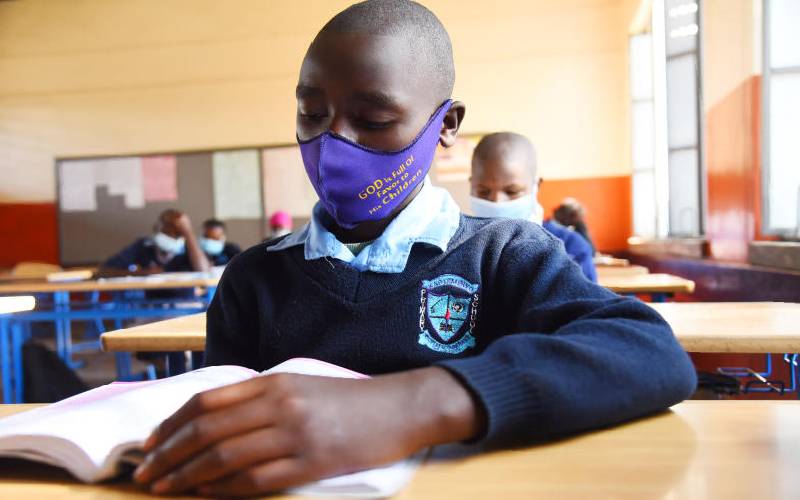×
The Standard e-Paper
Smart Minds Choose Us

A Class Eight pupil during a lesson at Kaptembwa Primary School in Nakuru. [Kipsang Joseph, Standard]
The race is on to procure masks for over 10 million school-going children. In the next two days, every primary and secondary student must have at least two masks as part of measures to ward off Covid-19, which led to the closure of learning institutions 10 months ago.